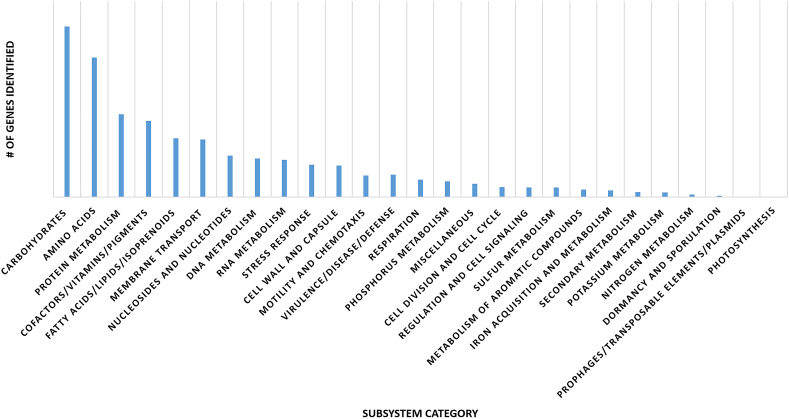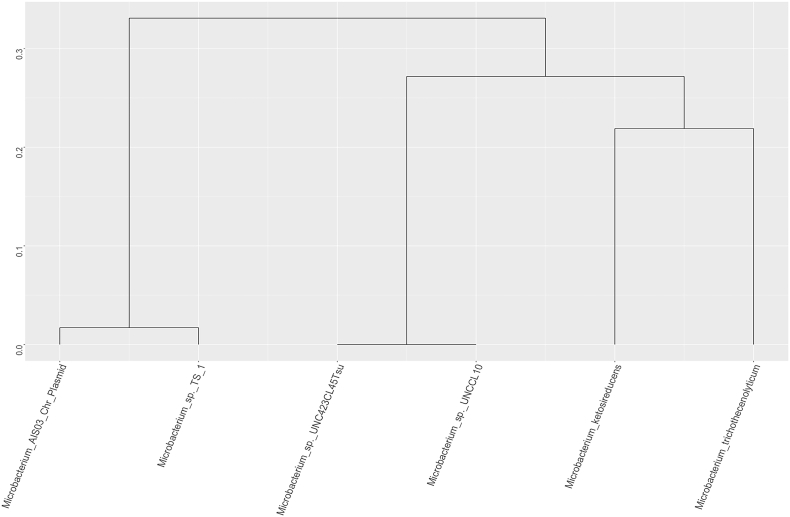Whole genome sequencing of Microbacterium sp. AISO3 from polluted San Jacinto River sediment reveals high bacterial mobility, metabolic versatility and heavy metal resistance
引用次数: 3
Abstract
The genus Microbacterium is composed of high GC content, Gram-positive bacteria of the phylum Acintobacteria known for their antibiotic production. Microbacterium species commonly colonize agricultural rhizospheres and more infrequently have been found to colonize and infect human tissues as well. Here we report the 3,696,310 bp draft genome (chromosome and plasmids) sequence assembled at the scaffold level from 232 contigs of Microbacterium sp. strain AISO3, isolated from polluted San Jacinto River sediment in Channelview, Texas. The nucleotide sequence of this genome was deposited into NCBI GenBank under the accession NHRF00000000.


来自受污染的圣哈辛托河沉积物的微细菌sp. AISO3的全基因组测序显示出高的细菌流动性、代谢多样性和重金属抗性
微细菌属由GC含量高的革兰氏阳性细菌组成,以生产抗生素而闻名。微细菌物种通常定植于农业根际,更罕见的是也被发现定植并感染人体组织。在这里,我们报道了从德克萨斯州Channelview污染的San Jacinto河沉积物中分离的Microbacterium sp.菌株AISO3的232个contigs在支架水平上组装的3,696,310 bp的基因组草图(染色体和质粒)序列。该基因组的核苷酸序列存入NCBI GenBank,登录号为NHRF00000000。
本文章由计算机程序翻译,如有差异,请以英文原文为准。
求助全文
约1分钟内获得全文
求助全文

 求助内容:
求助内容: 应助结果提醒方式:
应助结果提醒方式:


